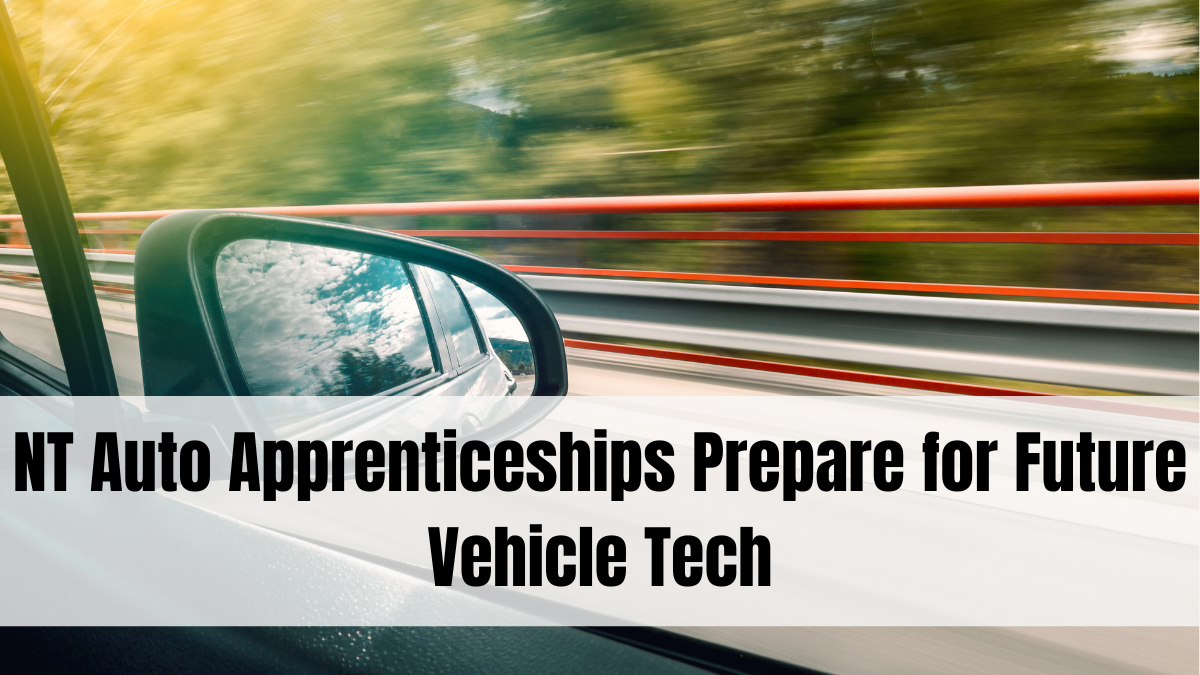As the global shift to electric and autonomous vehicles gains speed, Australia’s Northern Territory (NT) is making strategic moves to ensure it doesn’t get left behind. A robust EV industry training pipeline is now emerging through local apprenticeship programs that focus on hands-on experience with advanced vehicle systems, preparing the next generation of technicians for a high-tech automotive future.
With support from both government and industry, NT is positioning itself as a skilled hub capable of handling everything from EV servicing to the integration of autonomous driving technologies — a bold step toward future-proofing its workforce.

Why an EV Training Pipeline Matters
The traditional automotive job model is undergoing a massive shift. Today’s apprentices must master more than engines and exhausts — they need to understand:
-
High-voltage battery systems
-
Electric drivetrains
-
Vehicle-to-grid (V2G) technologies
-
Smart sensors and self-driving features
-
Over-the-air software updates and diagnostics
Without a dedicated EV industry training pipeline, regions risk a widening skills gap and reliance on external labor. NT is addressing this head-on through integrated vocational training and industry-backed apprenticeships.
What Apprentices Learn in NT’s EV Programs
Students entering the program are immersed in a future-focused curriculum that includes:
-
EV component identification and safe handling
-
High-voltage system shutdown procedures
-
Hands-on work with real and simulated electric vehicles
-
Diagnostics using advanced software tools
-
Introduction to autonomous systems and ADAS (Advanced Driver Assistance Systems)
This blend of technical and digital learning prepares students for a wide range of job roles in service, repair, fleet management, and EV infrastructure support.
Real Work Experience with Real Employers
One of the strongest features of NT’s EV industry training pipeline is its tight connection to local industry. Students don’t just learn in classrooms — they work directly in service centers, dealerships, and fleet garages, gaining on-the-job skills in a supportive environment.
Key benefits include:
-
Paid apprenticeships with structured learning milestones
-
Direct mentorship from experienced EV technicians
-
Early access to diagnostic tools and equipment used in the field
-
Opportunities to specialize in either light passenger EVs or commercial electric fleets
Employers benefit too, gaining access to talent trained specifically for future-ready tasks.
Preparing for Autonomous and Smart Vehicle Systems
While the spotlight often falls on EV batteries, NT’s programs also incorporate training in autonomous vehicle technology — a major disruptor expected to shape transportation in the coming decade.
This includes:
-
Sensor calibration and LIDAR system maintenance
-
Troubleshooting of vehicle communication networks
-
Understanding machine learning systems and driver alerts
-
Exposure to connected vehicle platforms and cloud diagnostics
By preparing apprentices for both electric and autonomous systems, NT is cultivating multi-skilled professionals for a broad and dynamic job market.
Government and Industry Support
The success of the NT EV industry training pipeline is powered by collaboration:
-
Government subsidies and funding for apprenticeships
-
Partnerships with automakers and local service providers
-
Grants for tools, PPE, and EV trainer equipment
-
Expansion of regional training centers with updated labs and simulators
This ecosystem ensures accessibility for students from all backgrounds, especially in remote or underserved areas of NT.
FAQs
What is the EV industry training pipeline?
It’s a structured program that prepares students for jobs in the electric vehicle industry through hands-on training, updated curriculum, and industry apprenticeships.
Why is this important for the Northern Territory?
NT is aiming to build a self-sufficient automotive workforce that can handle EV and autonomous vehicle technology without relying on outside technicians.
What kind of jobs can graduates pursue?
Graduates can work as EV service technicians, battery specialists, diagnostic techs, fleet managers, or ADAS system installers.
Do the apprenticeships include real-world experience?
Yes. Students gain paid, supervised experience in actual workshops and service centers while completing their technical education.
Are autonomous vehicles part of the training?
Yes. The program includes modules on self-driving technology, sensor maintenance, and software-based vehicle systems.
Click here to know more.
